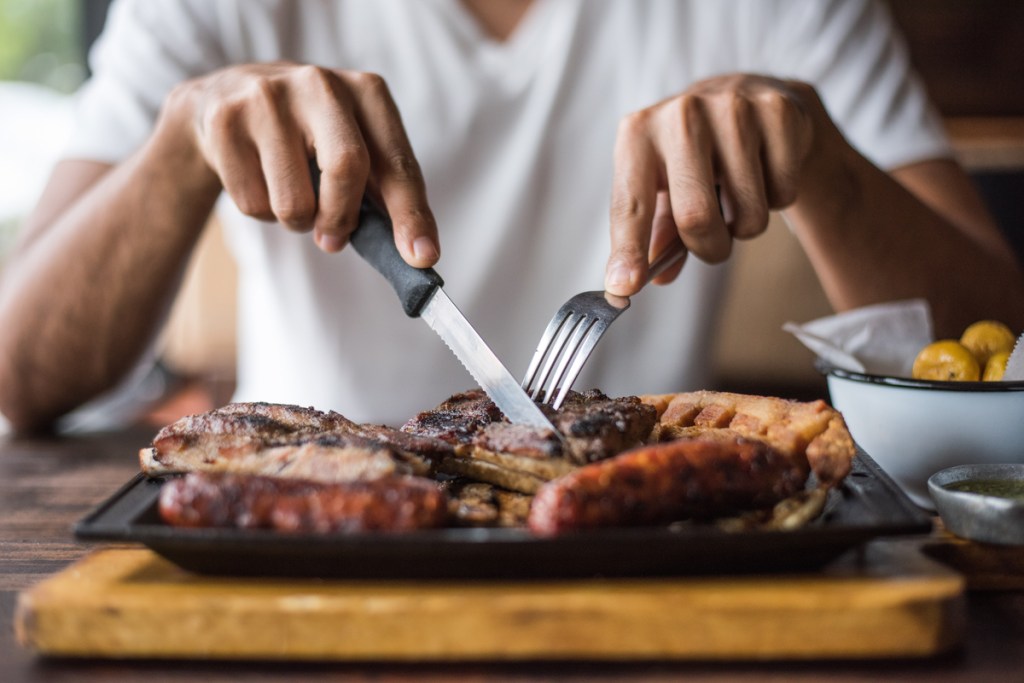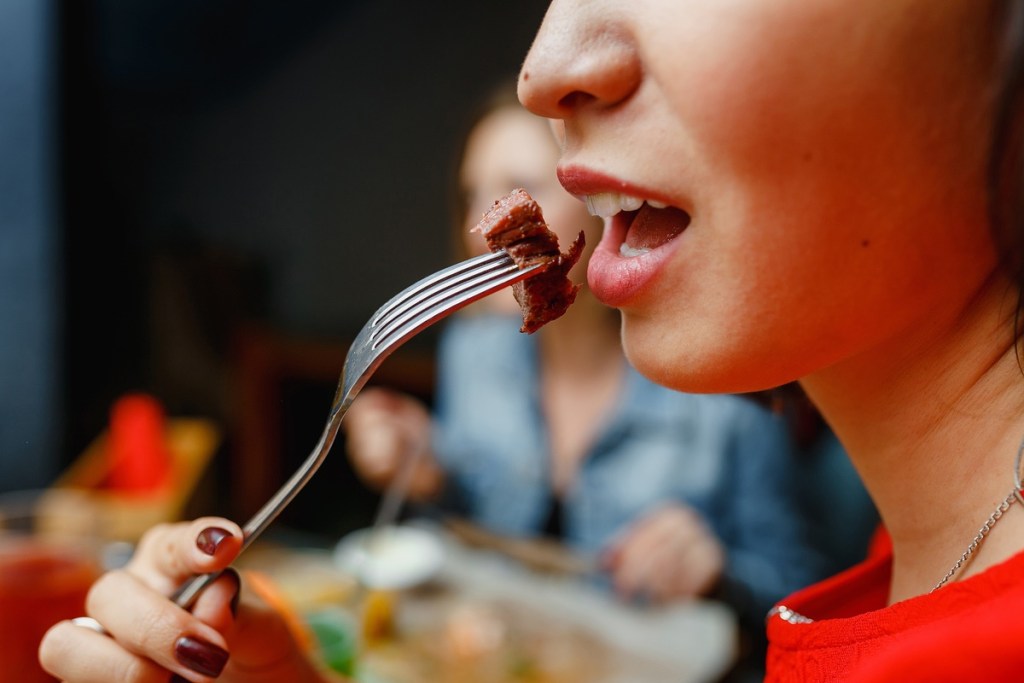
It’s always possible to have too much of a good thing. That can be true even of protein, and it may be a growing issue given the popularity of higher-protein diets like keto or paleo.
As the building blocks of our bodies and a key energy source, we’d be going nowhere fast without protein. But is there such a thing as overdoing it, and if there is, what are the cutoffs and possible red flags?
Here’s everything you need to know about protein intake and the potential risks of overconsumption.
Daily protein requirements
Recommendations vary when it comes to daily protein requirements. They can range from 0.36 grams for every pound of body weight (so about 65 grams per day for someone weighing 180 pounds) up to one full gram per pound or 180 grams for a 180-pound person. Another recommendation sets the target at 56 grams per day for men and 46 grams per day for women.
With that much variation, it’s equally uncertain how much is too much. Still, it is possible to identify some possible risks.

How do I know if I’m eating too much protein?
Think you may be overdoing it with protein? Here are some potential warning signs:
– Dehydration
– Diarrhea
– Fatigue
– Gastrointestinal discomfort
– Headache
– Irritability
– Nausea or upset stomach
Although a lot of things can cause these symptoms, and they are not in and of themselves considered overly serious, this could be your body’s way of letting you know that you’re overdoing it on the protein.
What are the dangers of too much protein?
Over and above the basic symptoms of protein overconsumption, there are a few more serious conditions associated with too much protein. Not everyone will necessarily develop these conditions, but studies have shown they may be possibilities.
However, the risk of many of these conditions is pretty low, and are far more likely for those with serious pre-existing conditions.
Kidney disease
Although studies have generally shown that this is more of a threat for people who already have kidney disease, it may also affect some people without kidney disease.
A 2020 analysis found that protein overconsumption can lead to various kidney problems, including the development of chronic kidney disease in those who had no prior kidney issues.

Kidney stones
Kidney stones are arguably the most common problem related to overconsumption, at least in the public consciousness. According to the National Institute of Diabetes and Digestive and Kidney Diseases, protein overconsumption can indeed lead to kidney stones. Again, however, it’s not clear how much is too much.
Heart disease
According to the US Centers for Disease Control and Prevention, heart disease is the top cause of death in the United States, accounting for more than 650,000 deaths each year.
A 2018 study found that high-protein diets increase this risk — although it depends on what kind of protein you consume.
The study found that high protein consumption increased the risk of heart disease by 33 percent among men ages 42-60 years. Animal protein posed the biggest threat, with men who got most of their protein from animal sources experiencing a 43 percent higher risk, while men who got most of their protein from plant sources saw only a 17 percent greater risk.
It is unclear why this gap exists, but the results clearly indicate that excessive protein, regardless of source, does indeed increase the chances of heart disease.
Weight gain
The risk of weight gain isn’t limited to carbs and sugar.
A bit of weight gain here and there is not as serious as, say, heart disease, but it’s also not ideal. As excess protein is broken down and stored as fat, it can lead to an uptick on the scale.
There is strong and widespread evidence that excessive weight gain leads to a host of well-known health risks, so if for no other reason this may be a reason to watch your consumption of protein, just as you would watch your consumption of most any other food category.
So, how much protein is too much? Experts haven’t been able to find consensus on daily intake, much less how much is considered over the limit. One estimate is that a 140-pound person should aim for an upper limit of about 125 grams per day.
The bottom line is that protein is good for you and relatively safe. But like many other things, eating huge amounts of it may be unhealthy. If you are experiencing any of the basic symptoms listed above, you may want to revisit your protein consumption.
It should not be overly difficult to simply reduce your protein intake to fall in line with recommendations. Although those recommendations may vary, aiming for the more conservative end of the spectrum might make sense if overconsumption is an issue.
BlissMark provides information regarding health, wellness, and beauty. The information within this article is not intended to be medical advice. Before starting any diet or exercise routine, consult your physician. If you don’t have a primary care physician, the United States Health & Human Services department has a free online tool that can help you locate a clinic in your area. We are not medical professionals, have not verified or vetted any programs, and in no way intend our content to be anything more than informative and inspiring.



